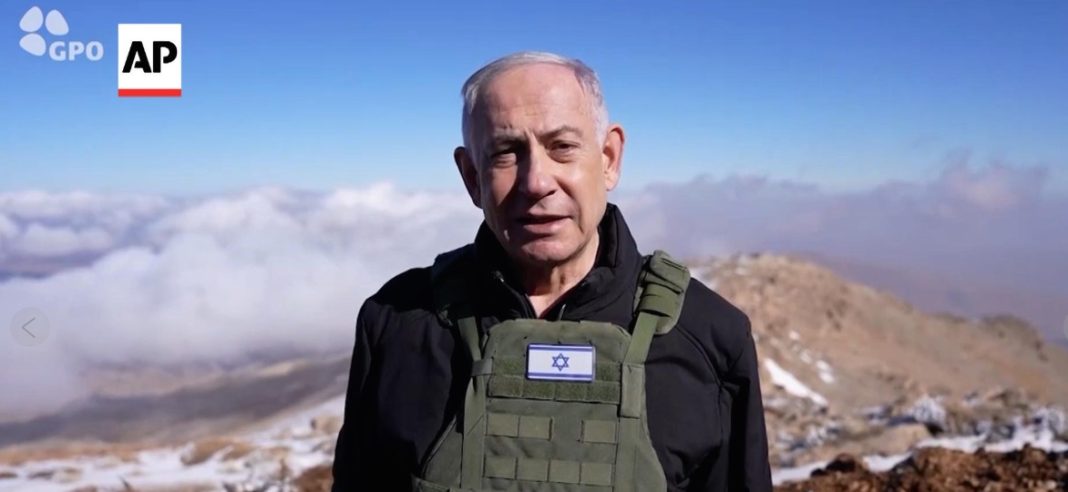Prime Minister Benjamin Netanyahu said Tuesday that Israeli forces will stay in a buffer zone on the Syrian border, seized after the ouster of Syria’s President Bashar Assad, until another arrangement is in place “that ensures Israel’s security.”
Netanyahu made the comments from the summit of Mount Hermon — the highest peak in the area — inside Syria, about 10 kilometers (6 miles) from the border with the Israel-held Golan Heights.
It appeared to be the first time a sitting Israeli leader had set foot that far into Syria. Netanyahu said he had been on the same mountaintop 53 years ago as a soldier, but the summit’s importance to Israel’s security has only increased given recent events.
Israel seized a swath of southern Syria along the border with the Israeli-annexed Golan Heights days after Assad was ousted by rebels last week.
Israel’s capture of the buffer zone, a roughly 400-square-kilometer (155-square-mile) demilitarized area in Syrian territory, has sparked condemnation, with critics accusing Israel of violating a 1974 ceasefire and possibly exploiting the chaos in Syria in the wake of Assad’s ouster to make a land grab.
“We will stay … until another arrangement is found that ensures Israel’s security,” said Netanyahu who had traveled to the buffer zone on Tuesday with Defense Minister Israel Katz.
Katz said he instructed the Israeli military to quickly establish a presence, including fortifications, in anticipation of what could be an extended stay in the area. “The summit of the Hermon is the eyes of the state of Israel to identify our enemies who are nearby and far away,” he said.
An Israeli military official, who spoke on condition of anonymity in line with military regulations, said there is no plan to evacuate the Syrians living in villages within the buffer zone.
The buffer zone between Syria and the Israeli-controlled Golan Heights was created by the U.N. after the 1973 Mideast war. A U.N. force of about 1,100 troops had patrolled the area since then.
A U.N. spokesman said Tuesday that the advance of Israeli troops, however long it lasts, violates the deal that set up the buffer zone.
That agreement “needs to be respected, and occupation is occupation, whether it lasts a week, a month or a year, it remains occupation,” spokesman Stephane Dujarric said.
There was no immediate comment from Hayat Tahrir al-Sham, the insurgent group that led the ouster of Assad, or from Arab states.




